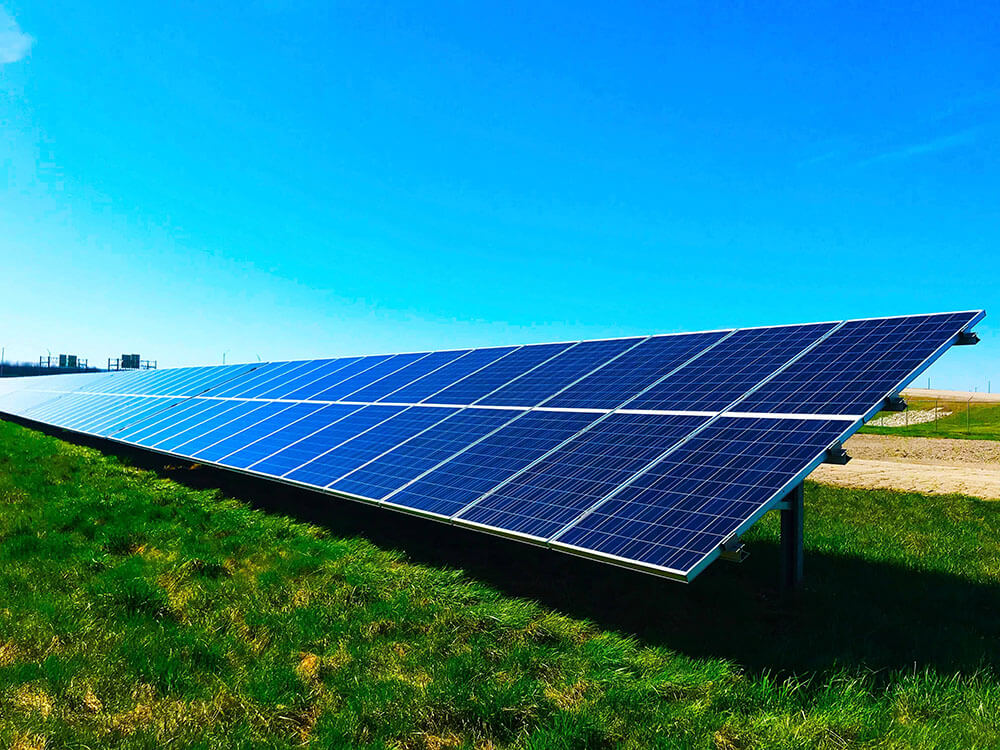Is solar energy really environmentally friendly?
Solar energy is quite amazing, its power generation is emission free and very cheap. But if something is incredibly good,there’s go to be a catch right。
You need to manufacture solar panels with a Carbon footprint, but solar panels will constitute more than twice the Carbon footprint of today's global tonnage of plastic waste. It seems that solar energy is not as green as many of us imagine. This is indeed true, let's take a look at the criticism faced by solar energy.
Emissions
Let's first take a look at the impact of solar energy on the climate. Solar panels generate electricity without generating emissions, which sounds great, but the entire process of producing them, especially the use of a large amount of energy and raw materials, must be mined, transported, processed, and then assembled. Moreover, as our economy still relies mainly on fossil fuels, all of which means greenhouse gas emissions, But the problem is the amount of emissions and how they compare to other energy sources. There is a kind of thing called Life-cycle assessment - greenhouse gas emissions from generating kilowatt hours. The result is that the average solar energy emits about 40g of carbon dioxide equivalent per kilowatt hour, which is indeed very low compared to fossil fuels such as 500g of natural gas or 1000g of coal. Renewable energy has provided significant benefits in replacing traditional energy sources, and more importantly, solar energy has become increasingly efficient, which can further reduce future lifecycle emissions and may even lead to the emergence of new solar technologies, such as perovskite modules, which are expected to use less energy in production and convert more sunlight into electricity, leading to a snowball effect, The more solar energy is deployed, the cleaner it is and the more it is produced. Yes, strictly speaking, solar energy is not completely zero emission, but it is already one of the most climate friendly energy sources we have.

Toxic chemicals
Next, let's take a look at what is actually produced, all of these panels.
To produce solar cells, you need quite a lot of chemicals. The main raw material of solar cells is silicon. For example, Silicon tetrachloride is produced in the process of refining silicon, which will affect people's health and the environment. But it can be recycled and reused, and manufacturers need to follow relevant safety operating procedures and environmental protection measures.
Finally, let's take a look at the death sites of all these battery panels
Waste
The lifespan of solar panels is about 30 years or even longer, but at some point they have reached their lifespan. So far, the waist pile of discarded batteries is still relatively low, at around 250000 tons. However, by 2050, it is expected to grow to 78 million tons, equivalent to the old solar panels of over 200 Empire State buildings. In the next 10 or 15 years, this will be a major crisis. The old battery panels will be piled up into a mountain of Electronic waste. We are already working hard to deal with it. The good news is that solar panels can be recycled, and they are already doing so. Mainly in the EU, governments of various countries force manufacturers to ensure that their waste panels are recycled.

The relevant facilities have already recycled a large amount of materials, but there are also some bad news, such as the low purity of recycled silicon, which means we cannot truly use it to manufacture new solar panels, but instead use it for other things such as shoe soles. Then there is another issue, the recycling cost is relatively high, at least in part because there are not yet so many modules to recycle.
The good news is that solar panels can be recycled, while the bad news is that many solar panels cannot be recycled yet, so this means that solar panels are not entirely green. However, this definitely does not mean that we should abandon them, as their benefits are too great. On the contrary, we should openly solve their problems and find out how to solve them.













